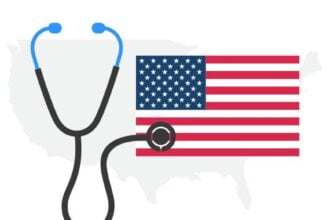The Benefits of Providing Preventative Care
Preventative care helps patients detect potentially serious health issues or chronic illnesses before they become costly. For example, detecting cancer early can help prevent it from spreading, leading to less costly treatments and increased chances of beating it. For Medicare and Medicaid beneficiaries, the Centers for Medicare and Medicaid Services helps patients receive quality care by encouraging practitioners to provide more preventative care screenings.
Preventative Care Reduces Cost
Through preventative care, patients can reduce costs of healthcare services, even for chronic illnesses. Detecting serious symptoms or illnesses allows patients to start proper treatment for those illnesses earlier. This helps prevent their chronic illness from spreading or becoming more serious. Through preventative care screenings, patients have a better chance at reducing the costs of health services they need in order to treat their chronic illness.
For example, if a preventative screening detects skin cancer in a patient early, it is much easier to fully treat. However, if a patient goes years without detecting skin cancer, the skin cancer can spread. This can lead to much more serious symptoms, higher risks of hospitalizations, and even more costly care services such as chemotherapy that may have been avoided if they could have removed the skin cancer early.
For healthcare practitioners, preventative screenings are much less costly than the healthcare services and resources needed to treat exacerbated symptoms of a chronic illness. By helping patients detect chronic illness early, they are saving resources for both their own healthcare services and hospital resources.
Practitioners Can Earn Incentives
There are financial rewards available to practitioners who provide quality care and preventative screenings to Medicare and Medicaid beneficiaries. While preventative care can help save resources for primary care practitioners, the Centers for Medicare and Medicaid Services also provides financial incentives to practitioners who implement a value-based care model. This allows practitioners to earn more for the quality of care they provide, rather than practitioners earning more for providing more services. Because of this, practitioners are motivated to provide the highest quality primary care possible to patients rather than try to upsell higher cost healthcare services.
How to Improve Care Quality
Because of incentives available through value-based care, hospitals, practitioners, and other care organizations are motivation to determine the best ways to improve the quality of care they give to patients. Accountable Care Organizations (ACO) consist of groups of doctors, hospitals, and other care providers joining together to collectively provide better care to patients.
ACO Reach streamlines care quality between these organizations through the consolidation of data and analytics. Coordinated care across organizations improve the quality and outcome of care for their patients while helping to reduce costs of resources needed to treat patients. This ensures that all of a patients’ health needs are served across healthcare professionals they might encounter, whether through primary care or the hospital.
To improve care quality and benefit from CMS incentives, practitioners across 23 states can utilize value-based care models or volunteer to join an Accountable Care Organization to streamline their care services. There are also tools available for these organizations to help analyze data for patients and the cost of treating patients in order to optimize their care and business.








